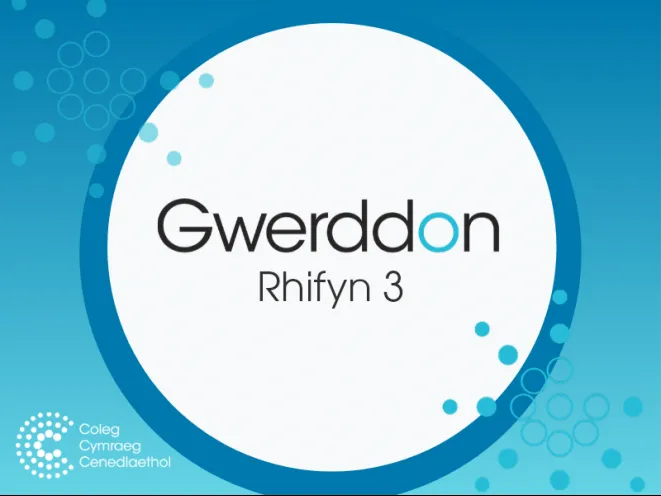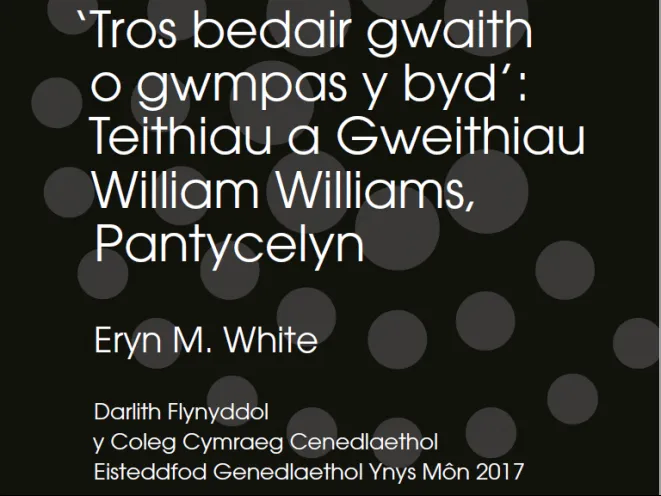Over the last quarter century, housing has become increasingly unaffordable for thevast majority of people. This article seeks to address what has caused this situation, and what its effects are on the individual and on the community. It will also consider how unaffordable housing and the lack of housing opportunities for local people affects the Welsh language. The article will then consider the mechanisms that have been adopted both by the National Assembly for Wales and by the Whitehall Government to resolve the inter-related problems of unaffordable housing and local people being unable to afford to buy houses in their local area, and the extent to which these solutions provide answers to this dilemma that are sustainable in the long term. To conclude, suggestions of how to improve the existing frameworks will be proposed, along with more radical approaches to ensure that housing does not become a luxury commodity.
Speaking the language of the home when the home is unaffordable
The Welsh language as a model for breaking the lack of use cycle in the context of minority languages
Using the contemporary status of the Welsh language in post-16 education and the administration of justice as models, the aim of this article is to identify a paradigm of minority language non-use that arises despite the formal provision of bilingual services and resources. Thereafter, weaknesses in this paradigm will be explored in order to evaluate how existing legislation and policies may be employed in a manner that facilitates a change in linguistic behaviour from that which normalises minority language non-use to one that maximises the opportunities for meaningful linguistic choices.
Darlith Flynyddol 2017: 'Tros bedair gwaith o gwmpas y byd': Teithiau a Gweithiau William Williams, Pantycelyn
Darlith Flynyddol y Coleg Cymraeg Cenedlaethol 2017: 'Tros bedair gwaith o gwmpas y byd': Teithiau a Gweithiau William Williams, Pantycelyn, gan Eryn White, Prifysgol Aberystwyth. Traddodwyd y ddarlith yn Eisteddfod Genedlaethol Môn ar ddydd Mawrth 8 Awst 2017.
The development of the syntax of numerals in Welsh
The rules determining the forms of nouns and adjectives after numerals and the associated initial-consonant mutations in Middle Welsh are often puzzling to Modern Welsh readers of the language. This article sketches the rules and provides a synchronic account of them. It is shown that they are based on a coherent system where number (singular, dual, numerative, plural) is central. The linguistic changes that have occurred since then are documented in detail and dated using textual evidence. It is argued that these changes can best be understood as steps along a pathway towards a new, equally coherent system where all numeral phrases are treated as singular, and gender rather than number determines both form and mutations.
‘’Does dim gwadu ar Etifeddiaeth’: A study of how John Gwilym Jones discusses legacy in Ac Eto Nid Myfi and a ...
One of the main themes in the work of John Gwilym Jones is how man is a slave to his chromosomes at the mercy of heredity and his environment. This article focuses on the said theme in his well-known play, Ac Eto Nid Myfi. In order to consider how John Gwilym Jones the author, as opposed to John Gwilym Jones the playwright alone, made use of this theme, due attention is given to a selection of his short stories. The article also discusses the influence of Darwin’s ideas of heredity on Realism as well as on John Gwilym Jones himself.
Cynan, The Establishment and the 1960s' Revolution
Cynan (Albert Evans-Jones, 1895-1970) was one of the most prominent Establishment figures in Wales for a large part of the twentieth-century. He served as Archdruid twice and played a crucial role in the controversial decision by the Gorsedd of Bards to take part in the Investiture ceremony of Prince Charles in Caernarfon castle on 1 July 1969. He was also one of the authors of the National Eisteddfod’s Welsh-language Rule, a policy which he supported firmly during his period as President of the Eisteddfod Court towards the end of his life. In contrast, Dafydd Iwan was one of the main leaders of the Welsh Language Society, the protest group that adopted radical campaigning tactics during the 1960s. In this article, the clash between Cynan and Dafydd Iwan is seen as one representing a struggle about the very definition of Welshness at the time.
The learner’s voice: The experiences of adults learning Welsh in north Wales
This paper discusses an ambitious study of adult learners of Welsh in north Wales. Over 1,000 people have taken part in the project, which is studying the experiences of learners throughout the region over a period of three years. This is the most comprehensive study of its kind in the field. The work is led by the North Wales Welsh for Adults Centre and the ESRC Centre for Bilingualism Research at Bangor University. Between September 2008 and August 2010, two questionnaires were distributed to beginners on all north Wales providers’ courses. The results of those questionnaires are discussed below, including aspects such as the learners’ background, their reasons for learning Welsh, their experiences during their course and their satisfaction with the provision. The history of Welsh for Adults is outlined and the research is set in the context of language revitalization and planning in Wales and beyond.
A study of tutors’ perspectives on learners’ pronunciation difficulties in the Welsh for Adults Sector
This article presents a detailed analysis of the views of experienced Welsh for Adults (WfA) tutors on learners’ pronunciation and the attention paid to teaching pronunciation in the sector. The data were collected by distributing an on-line questionnaire to experienced tutors in different parts of Wales, and by conducting focus groups with a sample of these tutors in two specific locations in Wales. The aims of the research are to establish how tutors perceive learners’ pronunciation difficulties and to what extent they are adequately trained to assist learners in this challenging aspect of language learning. The extent to which various aspects of pronunciation (e.g. producing specific sounds and intonation) affect learners’ ability to communicate effectively outside the classroom is also examined. A series of recommendations is presented at the end of the article which suggest how the WfA sector can improve its provision with regard to pronunciation. These recommendations concern the provision of courses, the training needed by tutors, resources that could be developed, the extracurricular activities that could take place, as well as further research which could inform pedagogy in the sector.
“No Mention of a Duw or a Dyn”: Investigating the ‘Northern U’ vowel in mid-Wales
The high central vowel, or the ‘northern u’ as it is informally called, is well known to be a characteristic feature of northern Welsh. Generally in north Wales, a clear contrast is heard between pairs such as ‘tŷ’ / ‘ti’ and ‘sur’ / ‘sir’. Conversely, since this contrast is neutralised in the south, these words are homophones, and are always pronounced with the high front vowel ‘i’. The main aim of this study therefore is to analyse quantitatively the way in which this contrast between ‘northern u’ and ‘southern i’ is lost in parts of mid-Wales. Consequently, the results will show the complex patterns of variation that arise in one particular ‘transition zone’, namely the Tywyn district, and demonstrate how speakers’ use of the high central vowel in this area is conditioned to a considerable extent by specific linguistic factors. Finally, this article will postulate that the interchange between the high front and the high central vowels is also related to variation in the length of diphthongs, and the implications of this theory will be probed.
The effect of recent changes on the linguistic uniqueness of Welsh
The Welsh language has several features in its grammar which are crosslinguistically very unusual. This paper looks at five such features, at their rarity in the languages of the world and at their place in Welsh grammar. It shows that the textual frequency of each feature, in corpora of spoken and written Welsh, is declining. These five features, which had been stable in Welsh since the earliest records well over a thousand years ago, have in the lifetime of older speakers become optional or obsolescent in the spoken language: the grammar of the language has changed. Welsh is likely changing because of bilingualism. Along with the recent increase in the public use of Welsh has come an increase in the use of English in the everyday lives of Welsh speakers. The average Welsh-speaker now speaks more English than Welsh, outside the family at least. Speaking a second language fluently and regularly HAS been shown to affect the speaker's first language, probably to lessen the psychological load in constantly switching between the two languages. It is argued that in such a situation cross-linguistically unusual features are inherently more susceptible to loss. Finally, the paper looks very briefly at possible future developments.
From social drama to the pageant: theatre in the cultural exchange between Wales and north-east India
This article uses theatre as a lens in order to examine the cultural exchange between Wales and the Khasi and Jaiñtia Hills that is rooted in the history of the Welsh Calvinistic Methodist Overseas Mission present in north-east India between 1841 and 1969. Focusing on Khasi plays from the colonial period as well as an example of Welsh missionary performance staged in Wales in 1929, the article considers the extent to which Welsh conceptions of theatre and drama influenced native performances in the Khasi Hills, and correspondingly, to what extent the missionaries’ perception of India influenced the idea and the representation of the country in Welsh performative portrayals.
Turning an-‘Other’ Page: Re-interpreting the relationship between south Wales’s Welsh- and English-speaking co...
This article analyses the relationship between Welsh and English speakers in pub scenes in two contemporary novels set in south Wales, namely Y Tiwniwr Piano by Catrin Dafydd (2009) and The Book of Idiots by Christopher Meredith (2012), in light of philosophical theories about the ‘other’ and otherness. The development of the concept of the ‘other’ is traced by considering the work of philosophers and cultural theorists such as Georg Hegel, Simone de Beauvoir, Frantz Fanon and Homi Bhabha. Turning to the work of Charlotte Williams and Simon Brooks, the article argues that both Welsh and English speakers in Wales can experience otherness, and the novels are then analysed to explore how this is reflected in contemporary fictional texts. The article draws conclusions about the significance of otherness to contemporary Welsh imagination and identity and suggests how other philosophical ideas could help us find common ground between Wales’s two main language communities.










